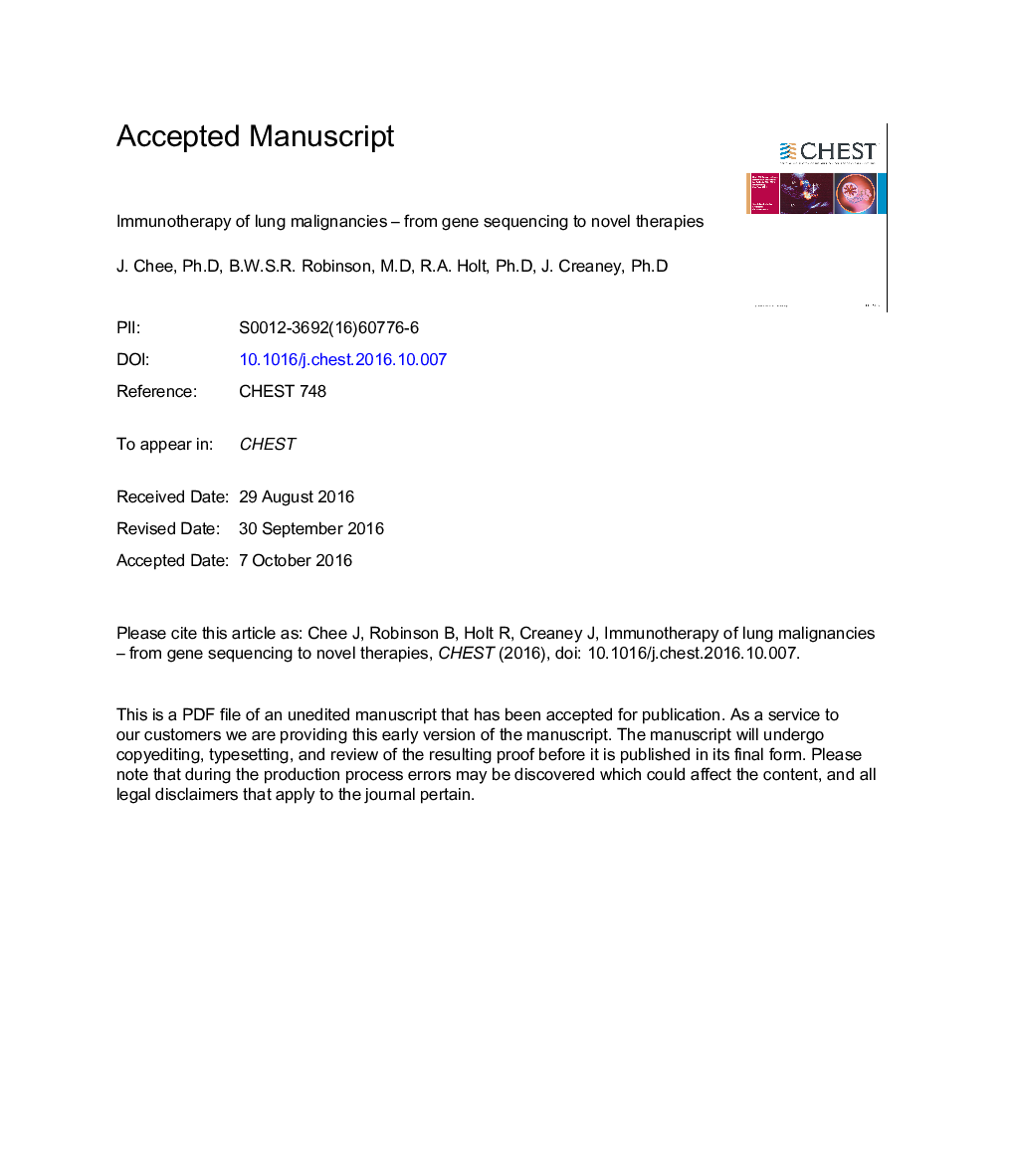| Article ID | Journal | Published Year | Pages | File Type |
|---|---|---|---|---|
| 5600353 | Chest | 2017 | 20 Pages |
Abstract
Harnessing the immune system to fight cancer is an exciting advancement in lung cancer therapy. Antitumor immunity can be augmented by checkpoint blockade therapy, which removes the inhibition/brakes imposed on the immune system by the tumor. Checkpoint blockade therapy with anti-programmed cell death protein 1 (anti-PD-1)/anti-programmed death ligand 1 (anti-PDL-1) antibodies causes tumor regression in about 25%Â of patients with lung cancer. In another approach, the immune system is forced or accelerated to attack the tumor through augmentation of the antitumor response against mutations carried by each lung tumor. This latter approach has become feasible since the advent of next-generation sequencing technology, which allows identification of the specific mutations that each individual lung tumor bears. Indeed lung cancers are now known to have high mutation rates, making them logical targets for mutation-directed immune therapies. We review how sequencing of lung cancer mutations leads to better understanding of how the immune system recognizes tumors, providing improved opportunities to track antitumor immunity and ultimately leading to the development of personalized vaccine strategies aimed at unleashing the host immune system to attack mutations in the tumor.
Keywords
Related Topics
Health Sciences
Medicine and Dentistry
Cardiology and Cardiovascular Medicine
Authors
Jonathan PhD, Bruce W.S. MD, Robert A. PhD, Jenette PhD,
